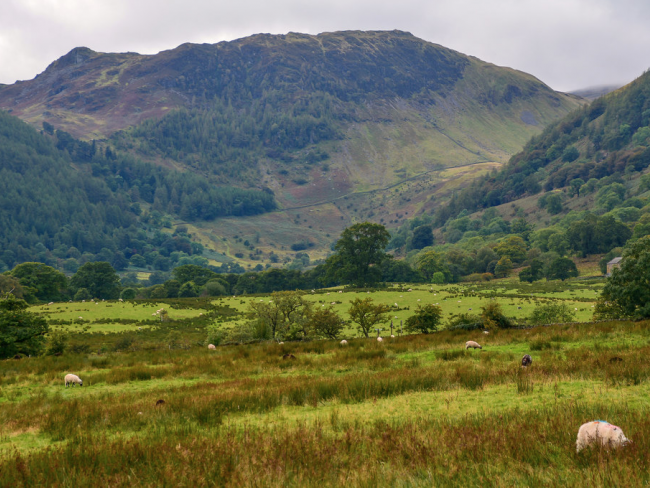25 November 2020

Rough grazing in Matterdale, near Ullswater, Lake District. Photo © Lewis Clarke (CC BY-SA 2.0)
English Pastoral, by James Rebanks, hardback, 304 pages, ISBN 978-0241245729, Penguin 2020, £20 (also available cheaper). Kindle edition available.
It isn’t every day that a thoroughgoing worker by hand and brain writes a book. Even more rare is it that it becomes a bestseller. That’s what James Rebanks has done with English Pastoral.
That Rebanks is a sheep farmer, and owner of 185 acres in the Lake District at Matterdale, shouldn’t obscure the fact that he is a consummate worker. And more than most he’s one who is worried, puzzled, and prepared to act. His book is his description of grappling with the decline of one of Britain’s primary industries, agriculture, and what he’s doing about it.
Having inherited a farm on the Lakeland fells which had been in his family for six hundred years, Rebanks is in a great position to cast an eye over how agriculture has been subject to the vagaries and processes of capitalism (not a word he anywhere uses), especially since the Second World War.
In these years farms have been amalgamated, specialised and Americanised. The aim is not to drive down supermarket prices as some abstract process, but to increase the profits of those supermarkets and the blood-sucking banks which lend to farmers (and to the rest of us).
Environment
At the heart of Rebanks’ concern is what capital’s takeover of agriculture has done to the natural world, the environment. Yet he is no idealistic environmentalist divorced from the land and concerned only with leisure and landscape: he understands the reality of what needs to be done to keep people fed, of “slaughter and death”.
In a heartfelt rendition of the rapid transformation brought about by the takeover of agriculture by outside forces – capital, American farming methods, the EU – the author lays bare what many don’t want to see. But he doesn’t stop there. He issues a call to arms to defend and protect our land by protecting its farming, and most important of all points out that that is the responsibility of us all to change the future by in the first instance changing the way we think.
“The world of human beings is often ugly, selfish and mean, and we are easily misled and divided. And yet, despite everything, I believe we, you and I, each in our own ways, can do the things that are necessary,” he writes. Read this excellent short book and find out what some of them are, and be pleased that of all bestsellers, this is worthy of the name.
